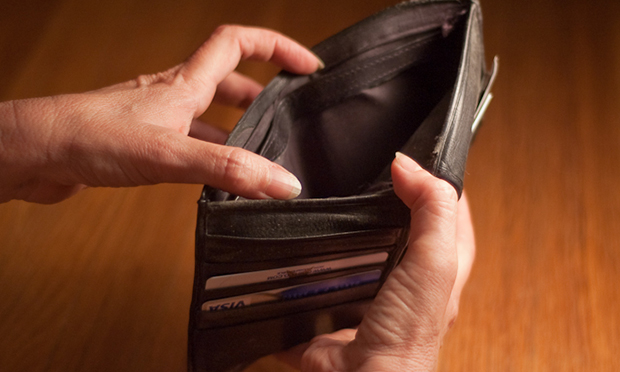Council tax support levels reset as campaigners call for Town Hall to go further

The Town Hall has reset the level of support given to its poorest residents to help pay their council tax.
Anti-poverty campaigners urged the Town Hall to reconsider an increase in the amount of tax paid by working age people in the borough who get help paying their bill from 15 to 17 per cent in 2018.
The council had agreed to monitor the impact of the changes and report back two years later, and has now decided to set the minimum contribution of council tax back to 15 per cent, with an ambition to move to a 10 per cent contribution by 2025/26.
Darren Martin, vice-chair of Hackney Liberal Democrats, said: “It’s good news that Hackney Council have U-turned on this.
“The Freedom of Information request we at the Hackney Lib Dems obtained showed the council were told their decision would impact the poorest and most vulnerable people in the borough the most but still went ahead.
“This seems like an admission that they got it wrong.
“The problem is that they are only returning to the same level of support from two years ago and after council tax rises over that period and with another on the way, those most in need will see little benefit from the change.
“If the council was serious about protecting the poorest people in the borough, the increase in Council Tax Reduction Support (CTRS) should at least cover the council tax hikes over the last two years as well as the one coming up.”
Martin went on to call for the Town Hall to stop using bailiffs to reclaim money from those on the CTRS.
The return to the previous level of support represents an investment of £500,000 by the Town Hall into the CTRS, which still struggles with a funding gap of £20 million.
Samir Jeraj of Hackney Green Party said: “This is a step forwards, but we can’t ignore the people that were plunged into debt by this policy and are still living with the consequences.
“Beyond that we need to restore real social security, and reform the creaking council tax system to make it fair.”
The council has insisted that the changes made in 2018 had a “minimal” impact on the number of people in arrears or on tax collection rates.
In exchanges on social media, Hackney Mayor Philip Glanville (Lab & Co-op) insisted that the move to reset was “absolutely nothing to do” with pressure from the Liberal Democrats or Greens.
The Mayor added: “Sadly we have no choice but to increase Council Tax for all residents, and that will have an impact on those both sides of the CTRS scheme. Because of our actions though they will be better off than they would have been.”
The proposals came as the Conservative administration announced in 2019 an expectation that local authorities increase council tax at the maximum rate each year, with the Town Hall seeing a £140m diminution in its government funding since 2010.
The Labour administration has been seeing pressure to reverse its earlier changes from within its own grassroots, according to Labour party activist and anti-poverty campaigner Ripon Ray.
Ray, who was a leading voice in opposition to the changes in 2018, said: “Hackney Council is meant to be lead by the Labour Party – a party that set up the welfare state, a party that set up the NHS, the party that founded on the principle of caring for those who are in need of help.
“To tackle poverty this council needs to do more – a 15 per cent reduction is not enough.
“Hackney Council is very slow at reacting to the need of impoverished communities. Due to welfare reform and austerity, the council has responded by a blanket policy of charging impoverished communities in Hackney. How fair is that?”
Cllr Rebecca Rennison, (Lab, Kings Park), cabinet member for finance and housing needs, said: “The continuing attack on local government finances meant we had to take the difficult decision to increase the minimum contribution for those who qualify for the Council Tax Reduction Scheme to 17 per cent in April 2018. Alongside this, the council decided to exempt our care leavers from Council Tax until the age of 25.
“Government cuts to public services, changes to benefits, and increases in everyday living costs such as food, rent, and utilities have a disproportionate impact on our poorest households, and we want to do everything we can to support them.
“This is why we have taken the decision to reduce the minimum Council Tax contribution to 15 per cent. We are working on a comprehensive poverty reduction programme, and our ambition for the future is to move to a zero per cent contribution for our poorest residents.”
